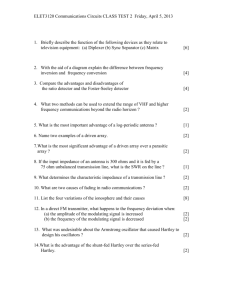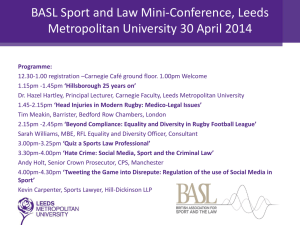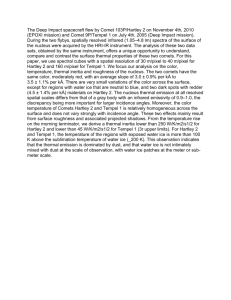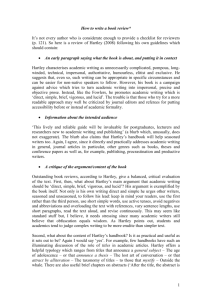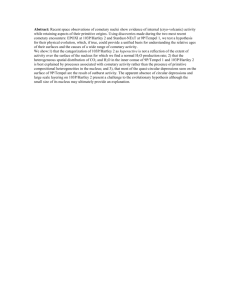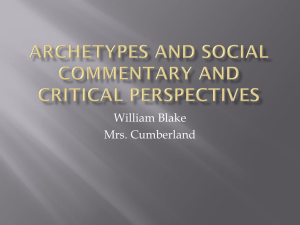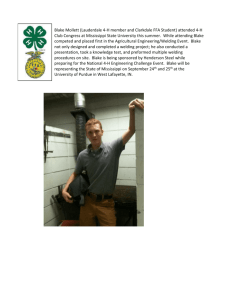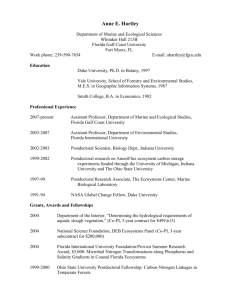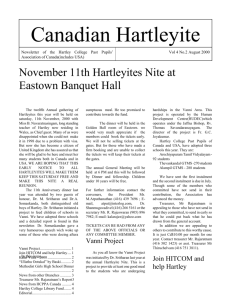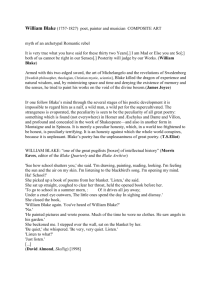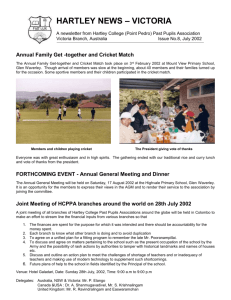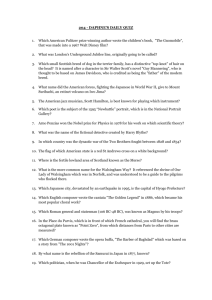British Association for Romantic Studies Stephen Copley
advertisement
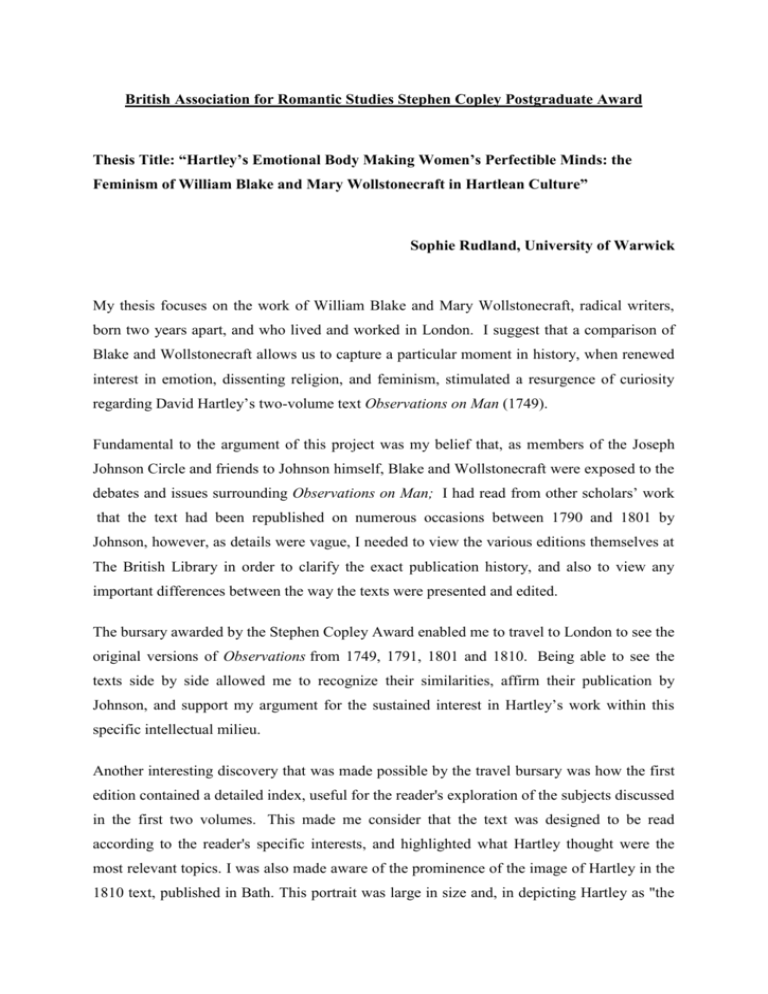
British Association for Romantic Studies Stephen Copley Postgraduate Award Thesis Title: “Hartley’s Emotional Body Making Women’s Perfectible Minds: the Feminism of William Blake and Mary Wollstonecraft in Hartlean Culture” Sophie Rudland, University of Warwick My thesis focuses on the work of William Blake and Mary Wollstonecraft, radical writers, born two years apart, and who lived and worked in London. I suggest that a comparison of Blake and Wollstonecraft allows us to capture a particular moment in history, when renewed interest in emotion, dissenting religion, and feminism, stimulated a resurgence of curiosity regarding David Hartley’s two-volume text Observations on Man (1749). Fundamental to the argument of this project was my belief that, as members of the Joseph Johnson Circle and friends to Johnson himself, Blake and Wollstonecraft were exposed to the debates and issues surrounding Observations on Man; I had read from other scholars’ work that the text had been republished on numerous occasions between 1790 and 1801 by Johnson, however, as details were vague, I needed to view the various editions themselves at The British Library in order to clarify the exact publication history, and also to view any important differences between the way the texts were presented and edited. The bursary awarded by the Stephen Copley Award enabled me to travel to London to see the original versions of Observations from 1749, 1791, 1801 and 1810. Being able to see the texts side by side allowed me to recognize their similarities, affirm their publication by Johnson, and support my argument for the sustained interest in Hartley’s work within this specific intellectual milieu. Another interesting discovery that was made possible by the travel bursary was how the first edition contained a detailed index, useful for the reader's exploration of the subjects discussed in the first two volumes. This made me consider that the text was designed to be read according to the reader's specific interests, and highlighted what Hartley thought were the most relevant topics. I was also made aware of the prominence of the image of Hartley in the 1810 text, published in Bath. This portrait was large in size and, in depicting Hartley as "the man of feeling", it focused readers’ attention on what Hartley symbolized. As a result, I have placed the images of Hartley, both from the 1791 and 1810 editions, in an appendix and discuss them within my Introduction. At The British Library I also located other shorter texts that were published by Johnson: first, “Of the Truth of the Christian religion. From "Observations on Man," &c. Part II.”, which was published in 1793 and 1798; and ssecond: “The Conclusion of the late Dr. Hartley's Observations on the Nature, Powers, and Expectations of Man; Strikingly Illustrated in the Events of the Present Times, with Notes and Illustrations, by the Editor”, published in 1794 and 1795. These texts were useful for my Chapter One, where I make argument for the way Hartley came to be associated as a theologian (as well as a scientist), and how debate about his religious teaching would have been known to Blake and Wollstonecraft. I also used my time at the library to refer to books about Blake that are not stocked at Warwick Library. Most important was Women Reading William Blake, the most recent contribution to Blake Studies surrounding feminism. Jacqueline Labbe's essay was particularly useful for my work, and the collection helped me to situate my research amongst other critics writing about feminism and gender. My second visit to London allowed me to go to the Dr Williams Library to speak with the library director, Professor David Wykes, who has published extensively on Rational Dissent and the Dissenting Academies. I wanted to deepen my understanding about the nature of the Dissenting Academies and Rational Dissent, and to have a historian's perspective on my literary-focused project. Professor Wykes' advised me to purchase David Hartley's will from The National Archives as a way to ascertain his religious background and to find further information about his character; he also spoke to me about the nature of Rational Dissent in society and the work of Ruth Watts, a scholar who had inspired my interest in Unitarianism because of her understanding of its Hartlean connections. Professor Wykes' generosity with his time was most encouraging in the final stages of my project. He challenged some of my preconceptions about Rational Dissent, and gave me the inspiration needed to complete my PhD and further understand the culture I was exploring. I thank the British Association for Romantic Studies for their faith in my project's value, and for this funding that enabled me to complete my PhD. Receiving this award was deeply helpful and motivating, and allowed me to feel part of a wider community in Romantic Studies that was interested in my work.
